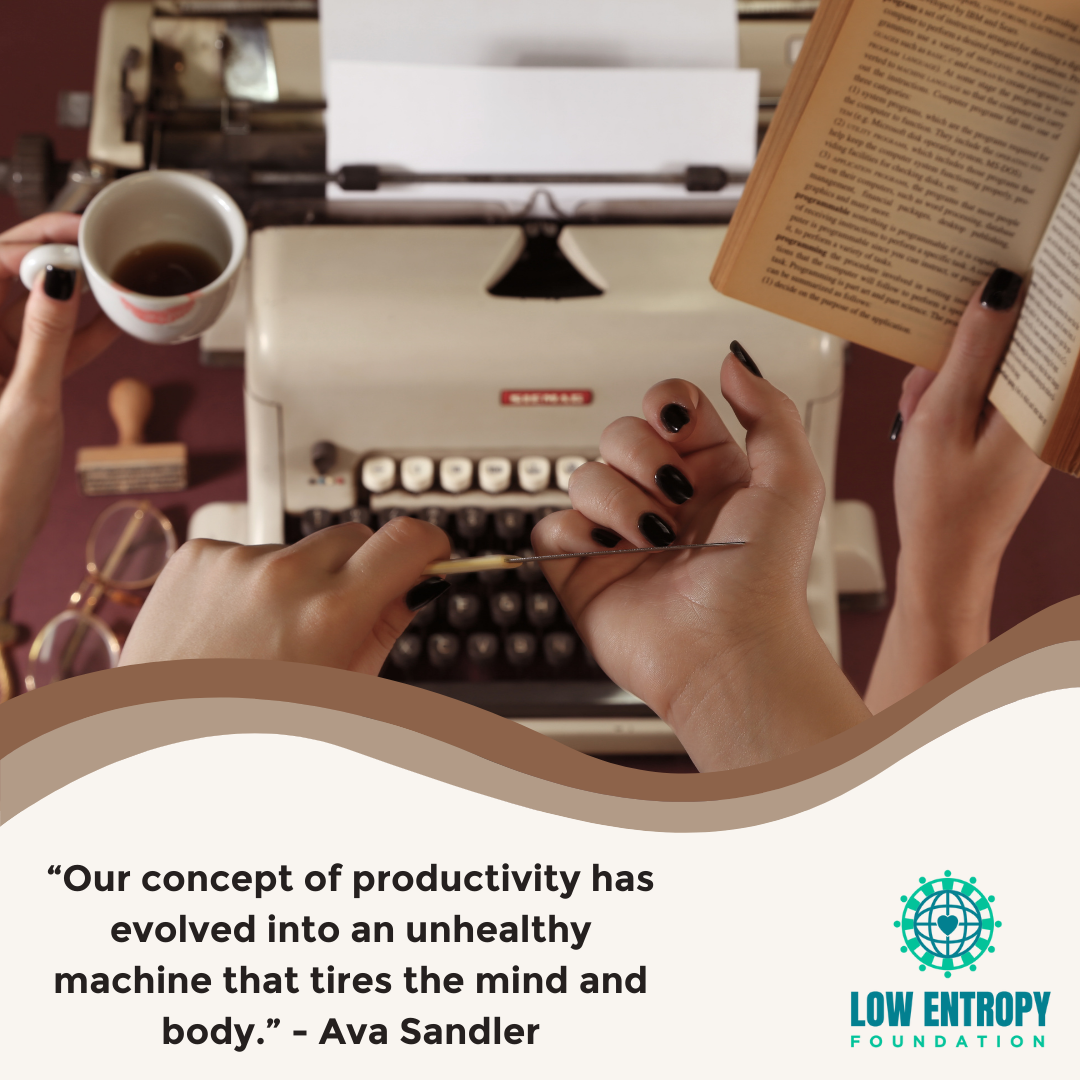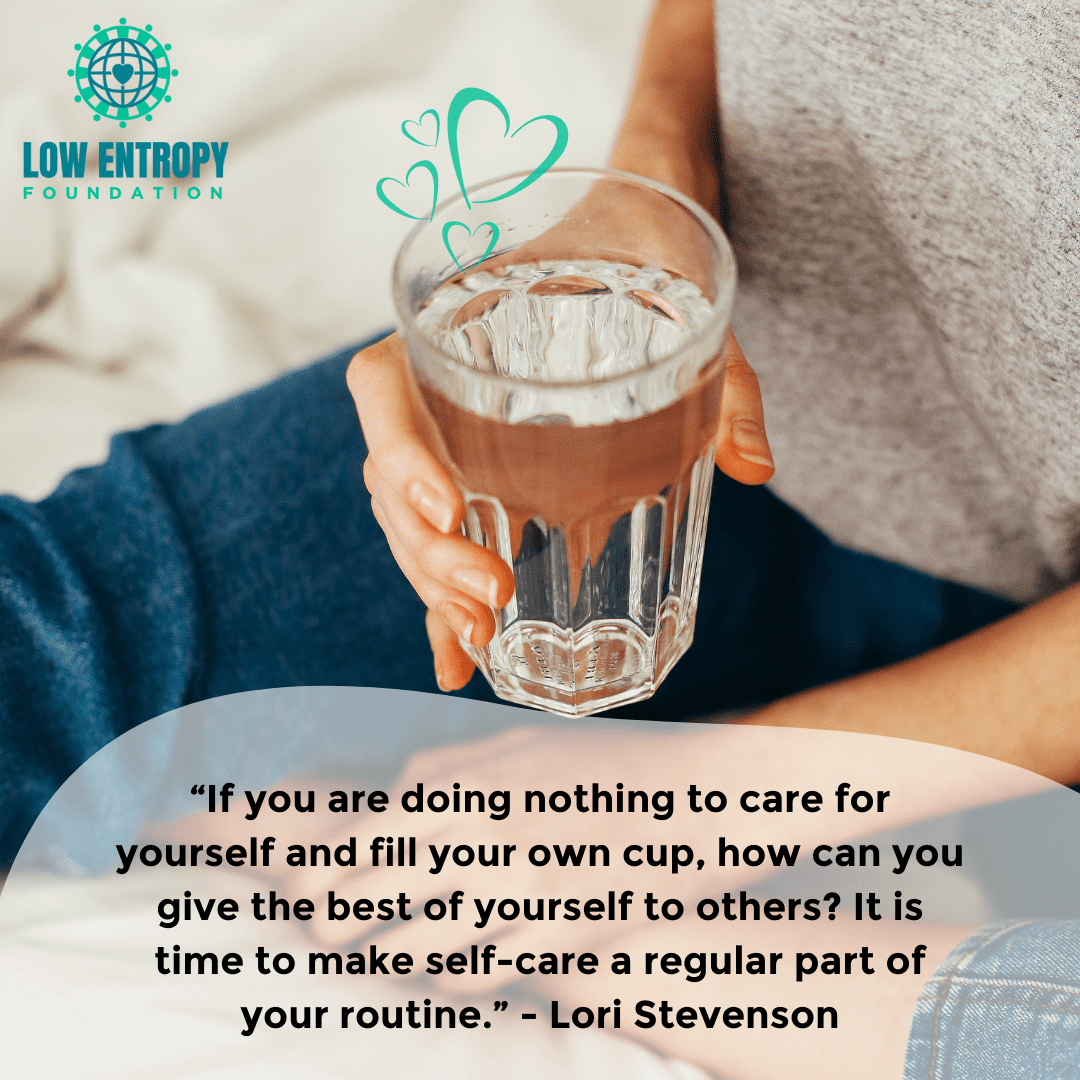Ava Sandler (she/her/hers), Low Entropy Volunteer Writer
In an age of increasing technological presence, quiet, meditative practices that require intellectual care are rapidly subsiding. Silent and solitary activities, such as reading and writing, are dismissed as mock pastimes, as people fail to consider them on equal terms with hobbies that offer physical stimulation and psychological strain. The value of these quieter, more introverted contributions is diminishing as our society grows increasingly concerned with busyness and the conventional act of “doing something.” Our concept of productivity has evolved into an unhealthy machine that tires the mind and body. United by the power they wield, sports and screens satiate our desire for distraction and busyness. As our society embraces a newfound state of overstimulation, the meditative activities that once satisfied the minds of our population can no longer offer liberation. In an attempt to further society, our values have changed to encompass a narrow idea of productivity and advancement at the expense of creative expression.
Several years ago, as I was preparing to enter the International Baccalaureate program in high school, a close friend of mine casually asked if I would finally enroll in extracurricular activities. She clearly did not consider my writing, nor my reading, nor the pilates, barre and yoga classes I attended worthy of the title “extracurricular activities.” Worth, however, is not at the root of such an issue. My friend herself is an avid reader and writer to this day; she had merely absorbed, much like the rest of us, the societal belief that these hobbies cannot possibly be defined as extracurricular activities due to their silent, solitary and physically undemanding nature. Particularly in the cases of reading and writing, these activities are dismissed largely because of their non-performative nature. Our society no longer values intellectual focus or critical thinking unless it is loudly paraded — be it in the form of competitions or performances or sports — or a clear path to technological modernity. Their involvement with the mind has allowed muted forms of psychological stimulation to fade into oblivion.
Recently, as I sat writing this very piece, my mother and sister sat before me. On one couch was my mother, wrapped in a blanket, casually drinking a cup of tea, ensconced in a book of essays, her expression curious and at peace; my sister, on the other hand, was slumped on the other couch, lazily gazing at her phone. While both were absorbing information, the way in which their brains interacted with it, and the values of their interactions, differed: my mother was thinking, while my sister was merely consuming. Therein lies the difference: the book poses a challenge; the screen offers the answer. While screens and sports are wildly different forms of entertainment, they are united by the societal perception of productivity. The humanities, dying as both a profession and field of interest, are not only regarded as boring, but also useless and valueless in the larger scheme of things. As a society, we crave distraction and busyness, so we gravitate toward physical stimulation and unhealthy forms of psychological stimulation. It is because we underestimate the value of quiet, intellectual activities that we dismiss their importance and allow them to reside in obscurity and mockery. Thus we encourage team sports and, perhaps inadvertently, technological forms of entertainment, but we fail to place a similar emphasis on art forms that excite the mind.
Recently, another close friend of mine remarked that for a long time she didn’t think I actually did many things outside of school. She said this not unkindly, but in a giggly, honest sort of way. I remain unoffended by this observation, as we are both surrounded by people whose very existence is fuelled by the constant rush of team-oriented physical activities. The athletic community is praised for their hard work and accomplishments, but mere artists, those whose thoughts shape their activities, are dismissed, disparaged, confined to invisibility. If we redefine our idea of productivity, or how we perceive diligence and intelligence, we will be able to unite the humanities and the sciences and the athletic departments.
When paced, physical activity is essential to a healthy lifestyle; likewise, quieter, focused activities are equally essential to balancing out such busyness and for offering their own kind of psychological busyness. Screens, though an integral feature of society, act only as an unhealthy form of stimulation and a distraction from creative pursuits. One of the very reasons why art forms are becoming invisible and unrecognized is because of the belief that they offer very little to the “new world” where our value is determined by distraction in the forms of technology and exercise that is based on material achievement. However, the advancement and the humanity of this society, of ourselves, relies immeasurably on the knowledge we obtain from books and writing and from the great thinkers who redefined what it means to do, or produce, something.
—
Hi! My name is Ava and I’m a passionate reader and writer. You can either find me curled up on the couch reading Harry Potter or at my local pilates, barre and yoga studio (or, more realistically, drowning in school work).27








